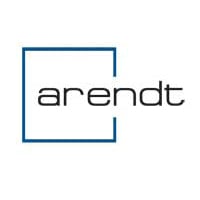

Group general counsel and chief compliance officer | CQLT SaarGummi Technologies





Leticia G. Lizardo
Group general counsel and chief compliance officer | CQLT SaarGummi Technologies
How do you feel the pandemic has changed the world of work for in-house counsel and the function of the general counsel?
The pandemic represented unchartered territory for all of us. In-house counsel had to get acquainted with the Covid-related rules in each jurisdiction and assess the full extent of their legal implications, from health and safety and personnel matters to upstream and downstream contractual commitments, government affairs and data privacy. Against the background of a rapidly evolving regulatory environment, in-house counsel was compelled to anticipate the trends and design alternative working hypotheses prior to the legislative changes taking place. This enabled them to provide timely guidance to management and prepare various business continuity scenarios in a very volatile environment. There has also been an increased contribution from in-house counsel to business decisions and all business-related discussions.
What will be the main focus for the company in the next 12 months and how do you intend to assist with this?
As a tier one supplier for the automotive industry, we had to deal with the semiconductor shortages, and this caused production volumes to plummet. Moreover, other supply chain disruptions triggered price increases and shortages of critical raw materials. In 2022, our focus will be on consolidating the sustainability of the business in constantly evolving supply chain setups. 2022 is likely to witness an increased attention to climate action, and we will continue to support the company’s ESG efforts by enabling new investments in cleaner technologies, supporting the development of environmentally friendly components and advancing towards a circular economy.
What do you feel are the pros and cons of an in-house legal role compared to a private practice one?
The main output of a lawyer in the private practice is specialised legal advice, which is highly appreciated for a prompt response to a complex and specific legal matter. In an in-house position, the legal aspects are just one part of advice management expects. It is not enough to say what the law says or how it is interpreted, but also how it may potentially affect the business. This entails assessing potential ripple effects and considering that mitigating certain risks may create other risks in different areas. Another important aspect concerns the delivery of legal advice and how in-house counsel can influence management’s decision. In this context, beyond legal knowledge, a good counsel must count on soft skills that can help navigate company politics while being a trusted source of advice. One big con for an in-house lawyer is the lack of resources. Work in a law firm means fee earners are provided with all resources necessary to provide reliable legal advice, but the situation can be the opposite in-house.
Head of legal office | Luxembourg Institute of Health